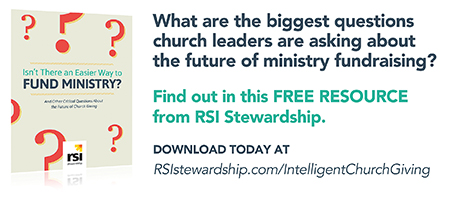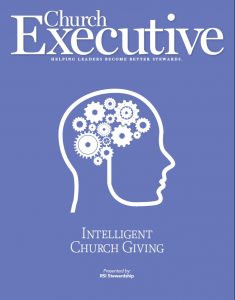 What church leaders really need to know
What church leaders really need to know
By Joel Mikell & Derek Hazelet
Data and technology provide church leaders with new ways of thinking about how to overcome financial challenges or fund growing ministry opportunities. Consequently, there are a lot of new concepts and topics being discussed across ministry circles.
Before you write off the ideas as “marketplace mumbo-jumbo,” let’s consider a few reasons why they might be applicable to your ministry.
An “inside look” at today’s church members
Understanding the value data and technology can provide starts with recognizing the mindset and motivations of the church members we’re trying to reach.
“Learn more about how you can create an easier way to fund ministry with Intelligent Church Giving by downloading our latest resource.
The expectations of your church members have changed. In a world where Amazon provides specific recommendations based on our shopping activity, today’s church members expect you to know their preferences, interests and ministry involvement. This is about more than adapting the format or style of a worship service — people want the churches they attend to truly know them.
Today’s church members still want to know they matter. They want to be connected to tangible impact and life change as a result of their generosity. This connection between giving and impact is a fundamental element of discipleship.
We live in a world that is noisier than ever. There are more nonprofits competing for the attention and resources of church members than ever before. We must be intentional about earning the attention and investment of church members rather than assuming it’s automatically given.
You can try to meet these expectations manually, exhausting yourself and your staff in the process. Or, you can deploy technology and tools to equip your staff to effectively disciple and cultivate generosity among your congregation.
 What church leaders really need to know
What church leaders really need to know
Familiarity with key concepts and phrases is important. Here are three terms you should know when it comes to leveraging data and technology to cultivate generosity:
#1: Business Intelligence
More than likely, you’re already gathering data about your church members (previous giving history, attendance/involvement, interests, etc.). However, data alone is meaningless unless you can do something with it.
In essence, business intelligence is about leveraging actionable data to drive your strategy, measure your effectiveness, and improve your efforts for accelerating generosity. It’s more than collecting data and reporting information; it’s turning data into actionable information.
#2: Marketing Automation

Until now, the processes for prompting church members to give have been manual, time-intensive activities. Marketing automation enables you to create a systematic process for cultivating generosity that isn’t dependent on a manual process. This allows you to spend less time sending emails or following up with church members, and more time doing ministry.
#3: Productivity Tools
How are you measuring ministry effectiveness? How are you making sure the energy you’re putting into cultivating generosity is actually moving people into deeper levels of commitment?
Productivity tools allow you to organize information and automate reports so you can see what’s happening on both a macro- and micro-level in various areas of ministry.
Why does this matter for ministry?
Now that we’ve defined the terms, here are just a few of the benefits data and technology provide:
Optimization — You have access to so much information on your church members. But, are you using it to make data-driven decisions that validate or challenge your intuitions? Taking the time to optimize your data is the key to working smarter, rather than harder, when it comes to solving the ministry challenges you face.
Integration — Many churches collect data in silos. Taking the time to connect the dots is key to overcoming your financial challenges. On a macro-level, it gives you the ability to see trends within your ministry. On a micro-level, it provides tangible insights to cultivate generosity in individual church members.
Activation — Data and technology are useless unless you can use them to move people to action. Marketing automation and productivity tools allow you to develop a systematic process for implementing the things you learn from data to make a tangible impact.
Most church leaders don’t know what they have at their fingertips. Many parachurch ministries and nonprofits are embracing business intelligence best practices, marketing automation and productivity tools to increase contributions. For-profit companies have been doing this for years. Our mission has eternal significance, and the stakes are much higher.
Why wouldn’t we use the information and tools we have available to fund ministry, both now and in the future?
Joel Mikell is president at RSI Stewardship. Follow him on Twitter, or find him on Facebook.
Derek Hazelet is senior vice president at RSI Stewardship. Find him on Twitter or LinkedIn.


